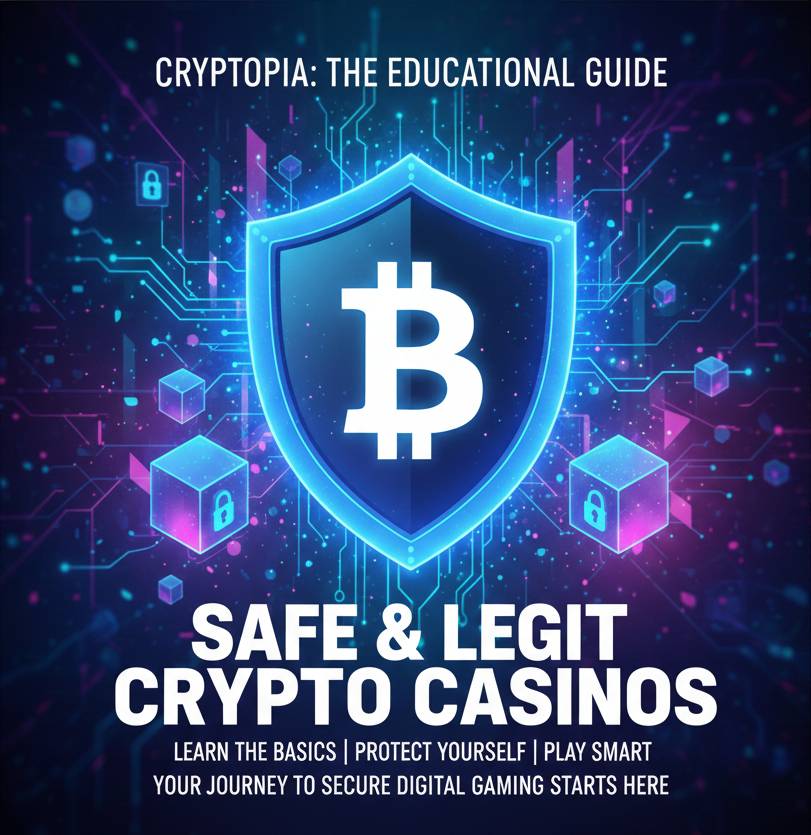The Rise of Decentralized Betting: How Crypto is Disrupting Traditional Online Casinos
The world of online gambling is experiencing a seismic shift. For decades, traditional online casinos have dominated, operating as centralized entities. Now, a new contender emerges: decentralized betting crypto. This innovative approach, leveraging the power of blockchain technology, promises to disrupt the status quo. It offers unparalleled transparency, fairness, and a new level of engagement for gamblers worldwide.
Understanding Decentralized Betting
Decentralized betting, often called “blockchain gambling” or “DeFi gambling,” operates on a distributed ledger technology – the blockchain. Unlike traditional online casinos, a single company does not control decentralized platforms. Instead, smart contracts, self-executing agreements with terms directly written into code, run these platforms. This fundamental difference eliminates the need for intermediaries, thereby creating a trustless environment.
Key Differences from Traditional Casinos:
- No Central Authority: No single company controls the games or holds your funds.
- Transparency: Users can often verify game logic and outcomes on the blockchain.
- Provable Fairness: Many decentralized platforms use cryptographic methods. These methods prove that game results are genuinely random and not manipulated.
- Direct Peer-to-Peer Interaction: Transactions occur directly between users and the smart contract, which reduces reliance on third parties.
The Blockchain Advantage: Benefits for Gamblers
The underlying technology of decentralized betting offers several compelling advantages. These benefits directly address common concerns with traditional online gambling.
Unmatched Transparency and Fairness
A significant benefit is the ability to verify game outcomes. In a traditional casino, you trust the random number generator (RNG) for fairness. However, with decentralized betting, blockchain and cryptographic proofs allow anyone to mathematically verify a game’s fairness. This “provably fair” system builds a new level of trust.
Lower Fees and Faster Payouts
By removing intermediaries, decentralized platforms can significantly reduce operational costs. These savings often translate into lower transaction fees for users. Furthermore, smart contracts typically process payouts automatically. This means platforms can disburse winnings almost instantly, avoiding the manual approvals or lengthy withdrawal processes common in traditional casinos.
Enhanced Accessibility and Privacy
Anyone with an internet connection and a crypto wallet can access decentralized betting platforms, regardless of their geographical location. (Of course, local regulations still apply.) While not entirely anonymous, blockchain transactions are pseudonymous. They link to a wallet address rather than directly to a user’s real-world identity, thus offering a degree of privacy.
Innovations in Decentralized Gambling
The intersection of crypto and gambling continues to foster new product offerings and unique user experiences.
DeFi Gambling and Yield Generation
Beyond simple betting, decentralized finance (DeFi) principles integrate into gambling. Some platforms allow users to provide liquidity to betting pools. This enables them to earn a share of the platform’s profits or interest on their staked crypto. Consequently, this blurs the lines between gambling and passive income generation.
NFTs and Play-to-Earn Models
Non-Fungible Tokens (NFTs) are increasingly finding their way into the gambling ecosystem. This can involve:
- Ownership of Game Assets: Players might own unique in-game items or characters as NFTs, which they can use for betting or trade.
- Play-to-Earn (P2E) Gambling: Some models reward players with cryptocurrency or NFTs for participating in games, creating an economic incentive beyond just winning bets.
- Exclusive Access: NFTs can grant holders special access to VIP features, exclusive games, or higher betting limits.
AI in the Decentralized Space
Developers are also exploring Artificial Intelligence (AI) to enhance decentralized betting. AI can:
- Personalize Experiences: It analyzes user behavior to offer tailored game recommendations or betting options.
- Detect Fraud: It identifies suspicious patterns or bot activity on the blockchain to maintain game integrity.
- Optimize Odds: It uses complex algorithms to set dynamic odds in real-time.
Challenges and Risks
Despite its promise, decentralized betting faces significant hurdles. These require addressing for broader adoption.
Regulatory Uncertainty
The decentralized nature of these platforms makes regulation challenging. Many jurisdictions still develop clear legal frameworks for cryptocurrency and blockchain. This leaves decentralized gambling in a grey area. Consequently, this uncertainty creates risks for both operators and users.
Volatility of Cryptocurrencies
While stablecoins address some volatility, betting with highly volatile cryptocurrencies like Bitcoin or Ethereum means winnings can fluctuate significantly even after a bet is placed. This adds an extra layer of financial risk.
User Experience and Security
Some decentralized platforms offer a less intuitive user experience than traditional online casinos. They often require a higher degree of technical literacy. Furthermore, users are solely responsible for their crypto wallets’ security. Losing private keys means irreversible fund loss. Smart contract vulnerabilities also pose a risk if developers do not rigorously audit them.
The Future Outlook
The decentralized betting crypto market remains in its nascent stages but grows rapidly. As blockchain technology matures and regulatory clarity emerges, it will likely capture a larger share of the global online gambling market. The emphasis on transparency, fairness, and user control resonates strongly with a new generation of gamblers.
While traditional online casinos will likely adapt by integrating some blockchain features, the truly decentralized model offers a compelling vision for gambling’s future – one built on trust, efficiency, and innovation, powered by crypto.














Post Comment